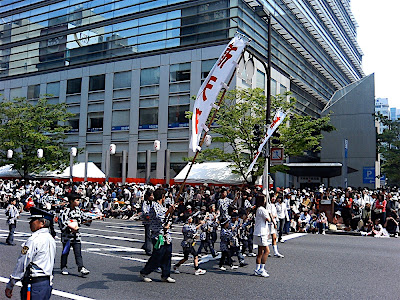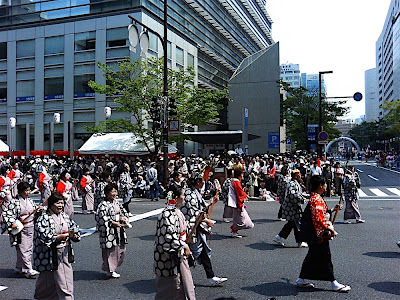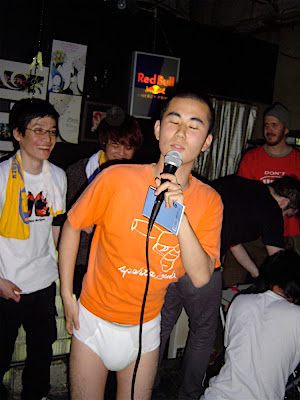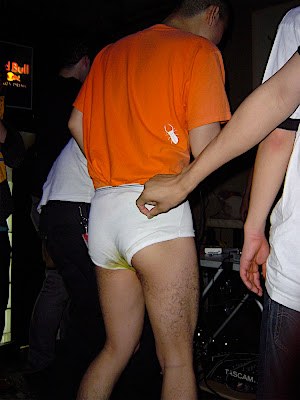El sábado fui invitado por Carlos de lostinjapan.info al festival de Orio, que es donde él vive en Kitakyushu. Es un sitio muy tranquilo y pintoresco.
先週の土曜日はlostinjapan.infoのカルロスに誘われて折尾祭(大学の学祭)を見に行った。カルロスの大学がある折尾という町はとても静かでいい感じのところ。
Last Saturday I was invited by Carlos from lostinjapan.info to the Orio festival, which is held in the town where he studies in Kitakyushu. It’s a very quiet and inspiring place.
Justo al salir de la estación después de una hora de tren, me encontré con la gente de las fotos de aquí arriba. Estaban ensayando sus bailes de Okinawa para actuar en el festival a las 5 de la tarde (eran las 3).
電車で1時間、3時ぐらいに折尾駅に到着。駅を出たとたん上記の写真の人々が現れた。5時から祭りのメインステージで演奏する沖縄踊りの練習をしていた。
Just as I walked out of the station at 3pm, after 1 hour of train riding, I saw the people in the above photo. They were rehearsing for the Okinawan dance they’d be performing at the festival’s main stage later at 5pm.
Lo que lleva el tío de azul de la derecha es un sanshin, un instrumento okinawense muy parecido al shamisen japonés. Ambos tienen tres cuerdas, una caja pequeña, y un mástil sin trastes. Pero a diferencia del shamisen, el sanshin tiene la caja forrada de piel de serpiente y se toca con una uña postiza, tradicionalmente hecha de cuerno.
右の青の人が引いているのは三線(沖縄の三味線)。蛇の皮で出来ていて、水牛の角で出来た爪で引くらしい。
The guy in blue on the right is playing a sanshin, Okinawa’s shamisen. They both have 3 strings, a small box, a a fretless mast. But the sanshin has its box made of snake skin, and it’s supposed to be played with a pick made of cow horn.
A las 5 ya me había reunido con Carlos y, mientras esperábamos a que un amigo suyo empezase a hacer tacos, estuvimos viendo los bailes de Okinawa, que daban una sensación muy natural y de fiesta, pero para nada de actuación. Esta gente se estaba divirtiendo mucho.
5時前にカルロスと合流して、屋台でメキシコ人の友達がタコスを作ってくれるのを待ちながら、沖縄の踊りを見ていた。その踊りだけで「祭り」の雰囲気がかなり伝わってきて、とても自然な形だったので、実際演奏しているように見えなかったほど。みんな楽しそうだった。
At 5 pm I had already met Carlos, and while we waited for a friend of his to make some tacos, we watched the Okinawan dances. It felt like a very natural and party thing, and I couldn’t think of it as a performance. They were having a lot of fun.
En el escenario estaba la gente con los tambores grandes y los sanshin. Por todo el recinto había un par de personajes con ropa un poco más rara, una botella enorme de shochu (aguardiente de Kyushu a falta de awamori de Okinawa, supongo) y la cara pintada.
ステージにはでかい太鼓と三線を持った人達がいて、あとは二人ぐらいの変わった服とメイクで、でかい麦焼酎のビンを持った男があちこち動き回っていた。
The guys with the big drums and the guys playing sanshin were up on the stage. And there were a pair of weirdos walking all around the dancing area, with their faces painted, different clothes and, most important, a big bottle of wheat shochu (maybe Okinawan awamori was too expensive?).

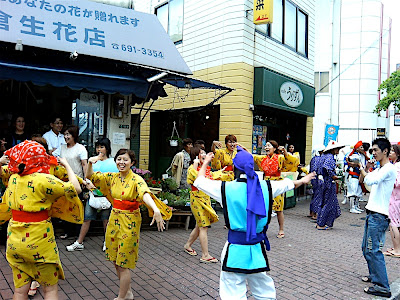
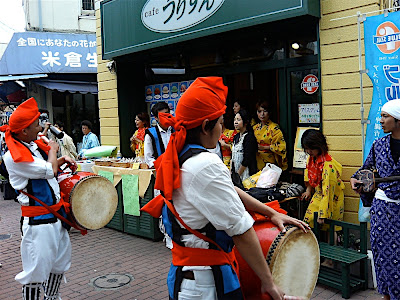
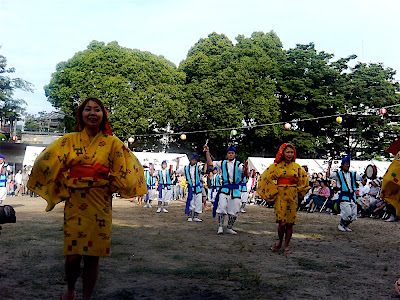
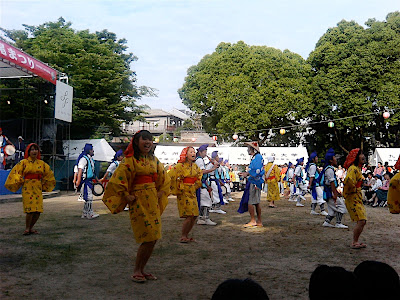
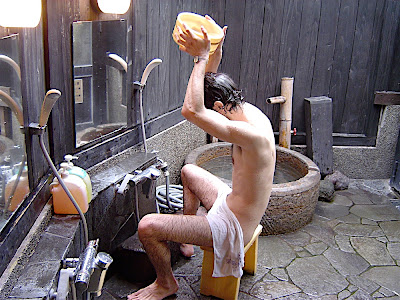
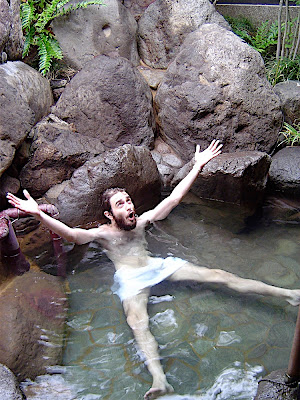
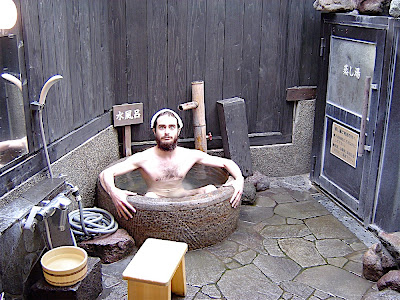
 El segundo domingo de Mayo es el día de la madre en Japón (en España es el primero). La faceta comercial de todos estos «días de algo» me deja muy frío por el hecho de hacer convenciones de los sentimientos, aunque también entiendo que vender claveles para regalar a las madres puede ayudar a mover dinero, y eso es bueno. Pero hay algo que me gusta del día de la madre de Japón.
El segundo domingo de Mayo es el día de la madre en Japón (en España es el primero). La faceta comercial de todos estos «días de algo» me deja muy frío por el hecho de hacer convenciones de los sentimientos, aunque también entiendo que vender claveles para regalar a las madres puede ayudar a mover dinero, y eso es bueno. Pero hay algo que me gusta del día de la madre de Japón.
